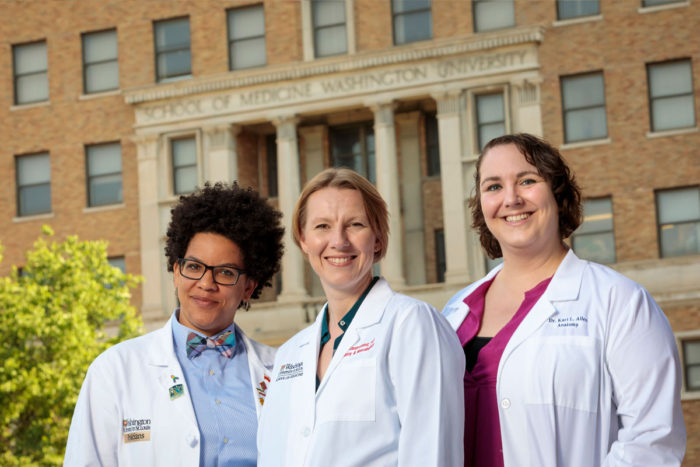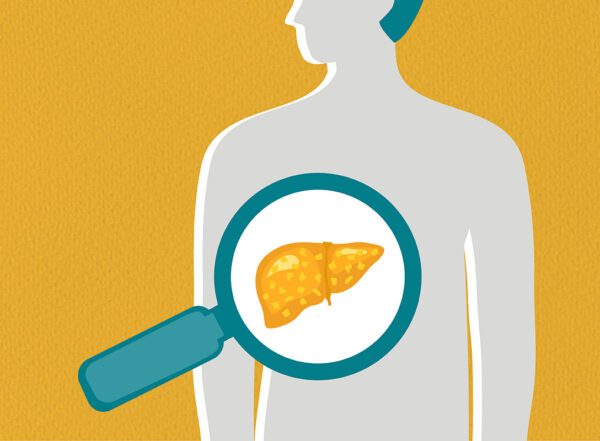Loeb Teaching Fellows announced
Allen, Bauernfeind, Punch awarded fellowships for 2018-20

The 2018-20 Carol B. and Jerome T. Loeb Teaching Fellows at Washington University School of Medicine in St. Louis have been named. They are Laurie Punch, MD, (from left) an associate professor in the Department of Surgery, and Amy Bauernfeind, PhD, and Kari Allen, PhD, both assistant professors of anatomy in the Department of Neuroscience.
Kari Allen, PhD, Amy Bauernfeind, PhD, and Laurie Punch, MD, have been named the 2018-20 Carol B. and Jerome T. Loeb Teaching Fellows at Washington University School of Medicine in St. Louis.
The fellowship program was established in 2004 with a gift from Carol B. and Jerome T. Loeb to advance clinical education. The program also is supported by The Foundation for Barnes-Jewish Hospital. The two-year fellowship provides recipients extra time to focus on implementing innovative ideas to enhance the education of medical students and residents.
“The Loebs have had a remarkable effect on the culture of medical education at Washington University,” said Eva Aagaard, MD, the School of Medicine’s senior associate dean for education. “When I look at many of the exciting innovations in our student curriculum, many have been touched by either a Loeb fellowship or a direct interaction with something supported by the Loebs.
“The innovative projects selected for the Loeb Teaching Fellowship have the potential to significantly impact our students as well as the overall field of medicine,” Aagaard said. “I am so excited to see these projects come to fruition. The work the fellows plan to do will be critical components in upcoming curriculum renewal.”
Allen and Bauernfeind, both assistant professors of anatomy in the Department of Neuroscience, will collaborate on a project. They will produce high-resolution, photographic dissection guides of human anatomy accessible through a mobile app called “thumbroll.”
“We have found that many of our students prefer learning resources that are tech-savvy, visually oriented and allow for flexible self-study,” Allen said. “Our goal is to provide our students with a more efficient, engaging and visually realistic resource for laboratory preparation and anatomical review than what is found in traditional textbooks.”
Added Bauernfeind: “The Loeb fellowship will give us the time to develop the guides, as well as to bring the unique material to learners around the world.”
Punch, an associate professor in the Department of Surgery, said she will develop a curriculum exploring “the anatomy of gun violence” as a disease and public health issue. Her plan allows for lessons to be taught during all four years of medical school through a combination of lectures, simulations and real-time experiences.
“As a trauma surgeon, I provide care to patients and families who experience gun violence,” Punch said. “My hope is to improve this care, reduce the impact of gun violence and prevent gun violence in the first place. Education of medical trainees is a critical step in this mission.
“Gun violence is a woefully unrecognized source of death and injury,” Punch said. “Homicide, overwhelmingly due to firearm injury, is the leading cause of death for African-American men ages 15 to 34. Firearm injuries are also the third leading cause of death in children. Nearly half a million lives were lost to gun violence from 1999 to 2013 in the United States, and millions live now with firearm-related injuries. Still, despite this tremendous burden, there is a relative paucity of dedicated research and education on the anatomy, physiology, treatment and prevention of gun violence within medical training.”






